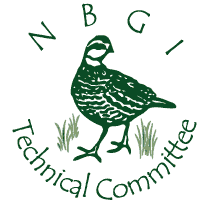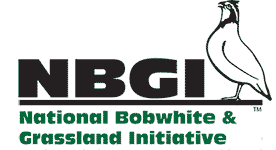News from the NRCS
The Bobwhite Quail in Florida is in trouble. In fact, populations across Florida and throughout the southeastern US have dropped from an estimated 31 million to only 5.5 million in the past 50 years. That’s 80 percent of the population just gone.
Habitat loss is the leading contributing factor to the quail’s demise. Bobwhites need frequently burned open pine savannas and rangelands to provide food, nesting and brood habitat and escape cover. Thinned pine stands (< 60 sq ft. /ac) and lower density pine plantings (< 500 trees / acre) are important to provide an open canopy that allows sunlight to the ground for food and nesting and brood habitat. Clumps of bunch grasses such as bluestems, Indian grass and wiregrass provide excellent nesting sites. Forbs such as ragweed, partridge pea and beggars tick provide food, cover and the bare ground essential for travel and finding seed. Shrubby areas with plants such as green briar, blackberry, plum thickets and yaupon provide quail escape cover from predators, protect them from cold or heat, and can be used as loafing sites.
Throughout Florida, changes in farm and timber practices have left little room for bobwhites. Pine stands are too thick with brush to provide habitat for quail. Many farms that once provided nesting and escape cover have cleared fence rows and left little ground for nesting and brood rearing. Former rangelands in the Panhandle have been converted to Bahia or Bermuda pasture which provide minimal benefit to bobwhites.
But these trends can be reversed. By applying a few practices, landowners can restore habitat by frequent prescribed burning, cutting back brush, thinning dense pine stands or disking.
Through a special 2017 signup ending May 19, the USDA’s Natural Resources Conservation Service (NRCS) is helping landowners restore quail and other pine savanna species that share the northern bobwhite range. NRCS will take applications for 2018 if you do not make the May 19 deadline. If you are interested in learning more, contact your local NRCS district conservationist at www.nrcs.usda.gov/wps/portal/nrcs/main/fl/contact or FWC private lands biologist at www.myfwc.com/conservation/special-initiatives/lap/contact-us  .
.
More information on Bobwhite Quail is available at the NRCS Wildlife Habitat Management Institute, www.whmi.nrcs.usda.gov, the National Bobwhite Quail Initiative, www.bringbackbobwhites.org  , Quail Forever, www.quailforever.org
, Quail Forever, www.quailforever.org  , or The Florida Fish & Wildlife Conservation Commission, www.myfwc.com
, or The Florida Fish & Wildlife Conservation Commission, www.myfwc.com  .
.

